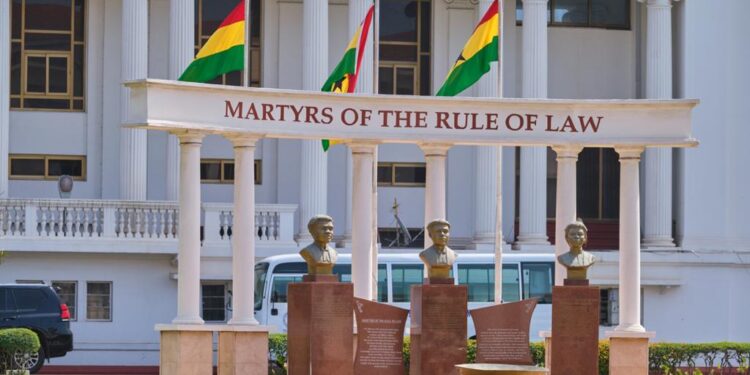Supreme Court strikes out section 13(2)(h) (i), (ii) of the Companies Act 2019
This was the judgment in a constitutional matter filed by a lawyer, Derrick Adu-Gyamfi who prayed the apex court to inter alia delete, expunge or strike out subsections of Act 992.

The Supreme Court of Ghana has today struck out section 13(2)(h) (i) and (ii)of the Companies Act 2019(Act 992) as being inconsistent with Article 19(2)(c) of the 1992 constitution.
This was the judgment in a constitutional matter filed by a lawyer, Derick Adu-Gyamfi who prayed to the apex court to inter alia delete, expunge or strike out subsections of the Companies Act, 2019 (Act 992).
According to him, those subsections; 2(h)(I), 2(h)(ii), 2(a)(i), I(c), etc of Sections 13, 172, and 177 of the Act, are unconstitutional and violate the principle of fair hearing among others.
As such, the Supreme Court in its wisdom granted his first two reliefs thus striking out sections 13(h((I) and (ii) of the Act as being in contravention of Article 19(2)(c ) of the constitution.
Article 19(2)(c ) of the constitution states that; A person charged with a criminal offence shall be presumed to be innocent until he is proved or has pleaded guilty.
However, the said sections of the Companies Act make a proposed director on an application for incorporation to deliver to the Registrar a statutory declaration indicating that within the preceding five years, he or she has not been charged with a criminal offense involving fraud or dishonestly.
Also, the second part required a proposed director on an application for incorporation to deliver to the Registrar a statutory declaration indicating that within the preceding five years, that proposed director has not been charged with a criminal offense relating to the promotion, incorporation, or management of a company.
As such, the applicant per a writ dated March 25, 2022, invoked the original jurisdiction of the apex court seeking among others a declaration that the above sections together with portions of 172 and 177 are inconsistent with the constitution.
Defendant's Case
On its part, the AG argued that the Companies Act which came into force in August 2019, introduced several new features notable among them is the restraint and disqualification of certain persons from holding the position of director of companies except with the leave of the court.
The AG thus averred that this new provision having been enacted into law by Parliament pursuant to Article 93(2) of the constitution, is sound.
Additionally, the AG impressed upon the court to adopt the purposive approach to interpreting the sections in contention stressing the fact that it is not a novel piece of legislation because institutions like the Bank of Ghana have been applying same by disqualifying directors.
However, the apex court in judgment upheld the applicant's first two reliefs holding that it was unconstitutional to require a person so charged with a criminal offence within the stipulated time to deliver a statutory declaration to that effect and so disqualifying them while they have not been proven or pleaded guilty.


